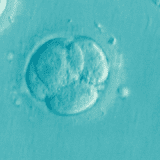Struggling to get pregnant can be a challenging and emotional journey. Seeking medical help is an important step towards understanding the underlying causes of infertility and exploring potential treatment options. When you visit your doctor, it’s crucial to ask the right questions to ensure you have a clear understanding of your situation and the available options.
Here are five essential questions to ask your doctor when you are having difficulty getting pregnant:
- What tests should I undergo to identify the cause of infertility?
Understanding the diagnostic tests that can help determine the underlying cause of infertility is crucial in formulating an effective treatment plan. Your doctor may recommend tests such as hormone level evaluations, ultrasound scans, semen analysis, or genetic testing to identify any issues that may be affecting your fertility.
- What are the available treatment options for infertility?
Discovering the various treatment options is essential in increasing your chances of getting pregnant. Your doctor may recommend fertility medications to stimulate ovulation, assisted reproductive technologies like in vitro fertilization (IVF) or intrauterine insemination (IUI), or surgical interventions to address any anatomical abnormalities.
a. How do fertility medications work, and what are their potential side effects?
Exploring the mechanisms of fertility medications and understanding their potential side effects is crucial. Fertility medications work by regulating hormone levels to stimulate ovulation. However, they may have side effects such as bloating, mood swings, or multiple pregnancies.
b. What are the different assisted reproductive technologies, and which one is suitable for me?
Getting insights into popular assisted reproductive technologies like IVF, IUI, or donor egg/sperm options can help you make informed decisions about your fertility treatment. Your doctor will assess your specific situation and recommend the most suitable option based on factors such as age, overall health, and the cause of infertility.
Discussing lifestyle modifications and alternative therapies with your doctor is important in optimizing your chances of getting pregnant. Your doctor may recommend adopting a healthy diet, regular exercise, stress reduction techniques, or complementary therapies like acupuncture or herbal supplements to enhance your fertility.
- What are the success rates and potential risks associated with the recommended treatments?
Understanding the success rates and potential risks of each treatment option is crucial in setting realistic expectations and making informed decisions about your fertility journey. Your doctor can provide you with statistics or success rates specific to your age and condition, giving you a better understanding of the likelihood of achieving a successful pregnancy.
a. Can you provide statistics or success rates specific to my age and condition?
Obtaining personalized success rate data based on your age and specific fertility condition is important. This information will give you a clearer picture of the chances of success with different treatments and help you make informed decisions about your fertility journey.
b. What are the potential risks or complications of the recommended treatments?
Learning about the possible risks and complications associated with fertility treatments is essential for your overall understanding. Your doctor can explain the potential side effects, risks of multiple pregnancies, or surgical complications, allowing you to make an informed decision about the treatment options available to you.
- What additional support or resources are available for individuals or couples struggling with infertility?
Discovering support groups, counseling services, and other resources can provide emotional support and guidance throughout your fertility journey. Your doctor can recommend local or online support groups, fertility counselors, or educational resources that can help you navigate the challenges of infertility and provide the support you need.
By asking these essential questions, you can gain a better understanding of your fertility situation, explore the available treatment options, and make informed decisions about your journey towards parenthood.
1. What tests should I undergo to identify the cause of infertility?
Understanding the diagnostic tests that can help determine the underlying cause of infertility is crucial in formulating an effective treatment plan. When struggling to get pregnant, it’s important to work closely with your doctor to identify any potential issues that may be hindering your ability to conceive.
Your doctor may recommend a series of tests to evaluate both you and your partner’s fertility. These tests aim to identify any underlying medical conditions or factors that may be contributing to infertility. Some common diagnostic tests for infertility include:
- 1. Hormone testing: This involves blood tests to measure the levels of various hormones, such as follicle-stimulating hormone (FSH), luteinizing hormone (LH), estrogen, and progesterone. Hormone imbalances can affect ovulation and the overall reproductive process.
- 2. Ovarian reserve testing: This test assesses the quantity and quality of eggs available for fertilization. It typically involves blood tests and an ultrasound to measure the levels of certain hormones and count the number of follicles in the ovaries.
- 3. Semen analysis: This test evaluates the quantity, quality, and movement of sperm in a semen sample provided by the male partner. It helps assess male fertility and identify any potential issues with sperm production or function.
- 4. Imaging tests: These tests, such as ultrasound or hysterosalpingography (HSG), allow your doctor to examine the reproductive organs for any structural abnormalities or blockages that may be affecting fertility.
- 5. Genetic testing: In some cases, genetic testing may be recommended to identify any genetic abnormalities that could be impacting fertility.
Based on the results of these tests, your doctor will be able to determine the most appropriate course of action to address the underlying cause of your infertility. It may involve lifestyle modifications, medication, or more advanced fertility treatments.
Remember, open and honest communication with your doctor is essential during this process. Don’t hesitate to ask questions and seek clarification on any concerns you may have. Understanding the diagnostic tests and their significance will empower you to make informed decisions about your fertility journey.
2. What are the available treatment options for infertility?
2. What are the available treatment options for infertility?
When struggling to get pregnant, it is important to explore the various treatment options available to increase your chances of conceiving. Your doctor may recommend different approaches based on your specific situation and the underlying cause of your infertility. Here are some of the treatment options commonly used:
- Fertility medications: These medications are often the first line of treatment and can help regulate ovulation and stimulate egg production. They may be prescribed in pill form or administered through injections. It is important to discuss with your doctor how these medications work and what potential side effects they may have.
- Assisted reproductive technologies (ART): ART includes procedures such as in vitro fertilization (IVF), intrauterine insemination (IUI), and donor egg/sperm options. IVF involves fertilizing eggs outside the body and then transferring the embryos into the uterus. IUI involves placing sperm directly into the uterus during ovulation. Your doctor will guide you in understanding the different ART options and help determine which one is most suitable for you.
- Surgical interventions: In some cases, surgical procedures may be recommended to correct anatomical abnormalities or address conditions such as endometriosis or blocked fallopian tubes. These procedures aim to improve fertility by removing obstacles that may be preventing pregnancy.
It is important to have a thorough discussion with your doctor about these treatment options. They will consider factors such as your age, overall health, and the cause of your infertility to determine the most appropriate approach for you. Remember, each individual’s fertility journey is unique, and what works for one person may not work for another. Your doctor will provide personalized recommendations to maximize your chances of getting pregnant.
a. How do fertility medications work, and what are their potential side effects?
When it comes to fertility medications, understanding how they work and their potential side effects is crucial for individuals struggling with infertility. These medications are designed to help regulate hormones and stimulate the ovaries to produce eggs, increasing the chances of conception.
There are different types of fertility medications available, and your doctor will prescribe the most suitable one based on your specific fertility condition. Let’s explore some common fertility medications and their mechanisms:
- Clomiphene citrate: This medication works by blocking estrogen receptors in the brain, which leads to increased production of follicle-stimulating hormone (FSH) and luteinizing hormone (LH). These hormones stimulate the ovaries to produce more eggs.
- Letrozole: Letrozole is an aromatase inhibitor that reduces the production of estrogen. By lowering estrogen levels, it can stimulate the production of FSH and LH, promoting ovulation.
- Gonadotropins: Gonadotropins are injectable medications that contain FSH and LH. These hormones directly stimulate the ovaries to produce multiple eggs.
While fertility medications can be effective in increasing the chances of pregnancy, they may also have potential side effects. It’s important to discuss these with your doctor and be aware of the possible risks. Some common side effects of fertility medications include:
- Hot flashes: Fluctuations in hormone levels can cause sudden feelings of warmth and flushing of the skin.
- Mood swings: Hormonal changes may lead to mood swings, irritability, or feelings of sadness.
- Abdominal discomfort: Some women may experience bloating, pelvic pain, or abdominal discomfort during treatment.
- Nausea: Fertility medications can sometimes cause nausea or vomiting.
- Headaches: Headaches are another common side effect reported by some women.
It’s important to note that these side effects are usually temporary and subside once the treatment is completed. However, if you experience severe or persistent side effects, it’s essential to consult your doctor.
Additionally, fertility medications may increase the risk of multiple pregnancies, such as twins or triplets. Your doctor will closely monitor your response to the medications to minimize this risk and ensure a safe and successful outcome.
b. What are the different assisted reproductive technologies, and which one is suitable for me?
When it comes to assisted reproductive technologies, there are several options available to help individuals or couples struggling with infertility. These technologies have revolutionized the field of reproductive medicine and offer hope to those who are having difficulty conceiving naturally. By understanding the different assisted reproductive technologies, you can make informed decisions about which one may be suitable for you.
In Vitro Fertilization (IVF):
IVF is one of the most well-known and commonly used assisted reproductive technologies. It involves the fertilization of eggs and sperm outside the body in a laboratory setting. During the IVF process, eggs are retrieved from the woman’s ovaries and fertilized with sperm in a controlled environment. The resulting embryos are then transferred back into the woman’s uterus, with the hope of achieving a successful pregnancy. IVF is often recommended for individuals or couples who have certain fertility issues, such as blocked fallopian tubes, endometriosis, or male factor infertility.
Intrauterine Insemination (IUI):
IUI is a less invasive assisted reproductive technology compared to IVF. It involves the placement of washed and concentrated sperm directly into the woman’s uterus during her fertile window. This procedure aims to increase the chances of sperm reaching the fallopian tubes and fertilizing an egg. IUI may be recommended for individuals or couples with mild fertility issues, such as low sperm count or cervical factor infertility.
Donor Egg/Sperm Options:
In certain cases, individuals or couples may require the use of donor eggs or sperm to achieve a successful pregnancy. This can be due to factors such as advanced maternal age, genetic disorders, or male infertility. Donor eggs or sperm can be obtained from anonymous donors or known individuals, depending on personal preferences and legal regulations. The use of donor eggs or sperm allows individuals or couples to still experience the joy of parenthood, even if they are unable to conceive using their own gametes.
It is important to consult with your doctor or fertility specialist to determine which assisted reproductive technology is most suitable for your specific situation. Factors such as age, underlying fertility issues, and personal preferences will all be taken into consideration when making this decision. By gaining insights into popular assisted reproductive technologies like IVF, IUI, and donor egg/sperm options, you can have a better understanding of the available choices and make an informed decision about your fertility treatment.
3. Are there any lifestyle changes or alternative therapies that can improve fertility?
When struggling to get pregnant, it’s important to explore all possible avenues to enhance fertility. Apart from medical interventions, there are lifestyle changes and alternative therapies that can potentially improve your chances of conceiving. Let’s delve into some of these options:
- Diet: A healthy and balanced diet plays a crucial role in optimizing fertility. Focus on consuming nutrient-rich foods, such as fruits, vegetables, whole grains, lean proteins, and healthy fats. Incorporating foods high in antioxidants, like berries and leafy greens, can also be beneficial.
- Exercise: Regular physical activity not only helps maintain a healthy weight but also promotes overall well-being and fertility. Engage in moderate exercise, such as brisk walking, swimming, or yoga, to boost blood circulation and reduce stress levels.
- Stress reduction techniques: High levels of stress can negatively impact fertility. Explore stress reduction techniques like meditation, deep breathing exercises, and mindfulness practices to promote relaxation and emotional well-being.
- Complementary therapies: Alternative therapies like acupuncture and herbal supplements have gained popularity in supporting fertility. Acupuncture, an ancient Chinese practice, involves the insertion of thin needles into specific points of the body to restore balance and improve reproductive health. Herbal supplements, such as chasteberry and maca root, are believed to have positive effects on hormonal balance and fertility.
While lifestyle modifications and alternative therapies can be beneficial, it’s important to consult with your doctor before making any significant changes. They can provide personalized guidance based on your specific situation and help determine the most suitable approach to enhance your fertility.
4. What are the success rates and potential risks associated with the recommended treatments?
Understanding the success rates and potential risks associated with each treatment option is essential when you are struggling to get pregnant. It allows you to set realistic expectations and make informed decisions about your fertility journey. By discussing these factors with your doctor, you can gain a better understanding of what to expect and choose the best course of action.
Success Rates:
When considering fertility treatments, it is important to ask your doctor about the success rates specific to each option. Success rates can vary depending on factors such as your age, overall health, and the cause of infertility. Your doctor can provide you with personalized data that will give you a clearer picture of the likelihood of achieving a successful pregnancy.
Potential Risks:
Alongside success rates, it is crucial to understand the potential risks and complications associated with each recommended treatment. While fertility treatments can be effective, they may also carry certain risks. Your doctor can explain these risks to you, allowing you to weigh the benefits against the potential drawbacks.
By having a comprehensive understanding of the success rates and potential risks, you can make well-informed decisions about your fertility journey. This knowledge will help you navigate the available treatment options and choose the path that aligns with your goals and comfort level.
a. Can you provide statistics or success rates specific to my age and condition?
When seeking fertility treatment, it is essential to have a clear understanding of the success rates based on your age and specific fertility condition. By obtaining personalized success rate data, you can better gauge the likelihood of achieving a successful pregnancy and make informed decisions about your treatment options.
Your age plays a significant role in fertility, as the quality and quantity of eggs decrease as you get older. By discussing statistics specific to your age group, your doctor can provide you with realistic expectations and help you plan accordingly. For example, if you are in your 20s or early 30s, your chances of success may be higher compared to someone in their late 30s or 40s.
In addition to age, your specific fertility condition also plays a crucial role in determining success rates. Different conditions, such as polycystic ovary syndrome (PCOS), endometriosis, or male factor infertility, may have varying success rates with different treatment approaches. By understanding the statistics specific to your condition, you can gain insights into the effectiveness of different treatment options.
It is important to note that success rates can vary widely depending on individual factors and the specific treatment being pursued. Your doctor will be able to provide you with the most accurate and up-to-date information regarding success rates based on your age and fertility condition.
Remember, obtaining personalized success rate data can empower you to make informed decisions and set realistic expectations as you embark on your fertility journey. By working closely with your healthcare provider, you can navigate the complexities of infertility treatment and increase your chances of achieving a successful pregnancy.
b. What are the potential risks or complications of the recommended treatments?
When considering fertility treatments, it is essential to be aware of the potential risks and complications that may arise. While these treatments offer hope and the possibility of achieving pregnancy, it is crucial to have a comprehensive understanding of the potential outcomes.
One of the most common risks associated with fertility treatments is multiple pregnancies. Fertility medications and assisted reproductive technologies can increase the chances of conceiving twins, triplets, or even higher-order multiples. While some may see this as a positive outcome, multiple pregnancies carry a higher risk of premature birth and other complications.
Another potential risk is ovarian hyperstimulation syndrome (OHSS), which can occur as a result of fertility medications. OHSS causes the ovaries to become enlarged and may lead to abdominal pain, bloating, and fluid accumulation in the abdomen. In severe cases, it can cause difficulty breathing and blood clotting issues.
Surgical interventions, such as laparoscopic procedures, also carry their own set of risks. Infections, bleeding, and damage to surrounding organs are potential complications that may arise during or after surgical interventions for infertility.
It is important to note that the specific risks and complications can vary depending on the individual’s unique circumstances and the type of treatment recommended. Your doctor will provide you with detailed information about the potential risks associated with the specific treatment options they recommend.
By understanding the potential risks and complications, you can make informed decisions about your fertility journey. It is crucial to have open and honest discussions with your doctor, addressing any concerns or questions you may have. Remember, knowledge is power, and being fully aware of the potential outcomes will help you navigate your fertility treatment with confidence.
5. What additional support or resources are available for individuals or couples struggling with infertility?
When struggling with infertility, it’s important to remember that you are not alone. There are numerous support groups, counseling services, and other resources available to provide emotional support and guidance throughout your fertility journey.
Support groups can be a valuable source of comfort and understanding, as they allow you to connect with others who are going through similar experiences. These groups often provide a safe space to share your thoughts, fears, and frustrations, and can offer valuable insights and advice from individuals who have faced similar challenges.
In addition to support groups, counseling services can also play a crucial role in helping individuals and couples cope with the emotional toll of infertility. Professional counselors can provide a safe and non-judgmental environment to explore your feelings, fears, and concerns. They can offer guidance and strategies to help you navigate the ups and downs of the fertility journey, and provide coping mechanisms to manage stress and anxiety.
Furthermore, there are various resources available that can provide additional support and information. Online forums and websites dedicated to infertility can offer a wealth of knowledge and a sense of community. These platforms often provide valuable resources, such as articles, blogs, and expert advice, to help you better understand your options and make informed decisions.
It’s important to remember that seeking support and utilizing available resources is not a sign of weakness, but rather a proactive step towards taking care of your emotional well-being. Infertility can be a challenging and isolating experience, but with the right support and resources, you can find the strength and guidance to navigate this journey.
Frequently Asked Questions
- 1. What tests should I undergo to identify the cause of infertility?
Diagnostic tests that can help determine the underlying cause of infertility may include blood tests to check hormone levels, ultrasound to examine the reproductive organs, hysterosalpingogram to evaluate the fallopian tubes and uterus, and semen analysis for male partners.
- 2. What are the available treatment options for infertility?
There are several treatment options for infertility, including fertility medications, assisted reproductive technologies (ART), and surgical interventions. Your doctor will recommend the most suitable option based on your specific situation.
- 3. How do fertility medications work, and what are their potential side effects?
Fertility medications help regulate hormone levels and stimulate ovulation in women. They may have side effects such as hot flashes, mood swings, and multiple pregnancies. Your doctor will explain the mechanism of action and potential risks associated with the specific medication prescribed.
- 4. What are the different assisted reproductive technologies, and which one is suitable for me?
Assisted reproductive technologies (ART) include in vitro fertilization (IVF), intrauterine insemination (IUI), and donor egg/sperm options. The choice of ART depends on factors like the cause of infertility, age, and overall health. Your doctor will guide you in selecting the most appropriate option.
- 5. Are there any lifestyle changes or alternative therapies that can improve fertility?
Certain lifestyle modifications like maintaining a healthy weight, following a balanced diet, reducing stress, and avoiding smoking and excessive alcohol consumption can positively impact fertility. Alternative therapies like acupuncture or herbal supplements may also be considered, but their effectiveness varies for each individual.
- 6. What are the success rates and potential risks associated with the recommended treatments?
The success rates of fertility treatments vary depending on factors such as age, cause of infertility, and treatment type. Your doctor can provide you with statistics specific to your situation. It’s important to discuss potential risks or complications associated with each treatment option to make an informed decision.
- 7. What additional support or resources are available for individuals or couples struggling with infertility?
There are various support groups, counseling services, and online resources available to provide emotional support and guidance during your fertility journey. Your doctor can recommend specific resources or you can explore organizations specializing in infertility support.











